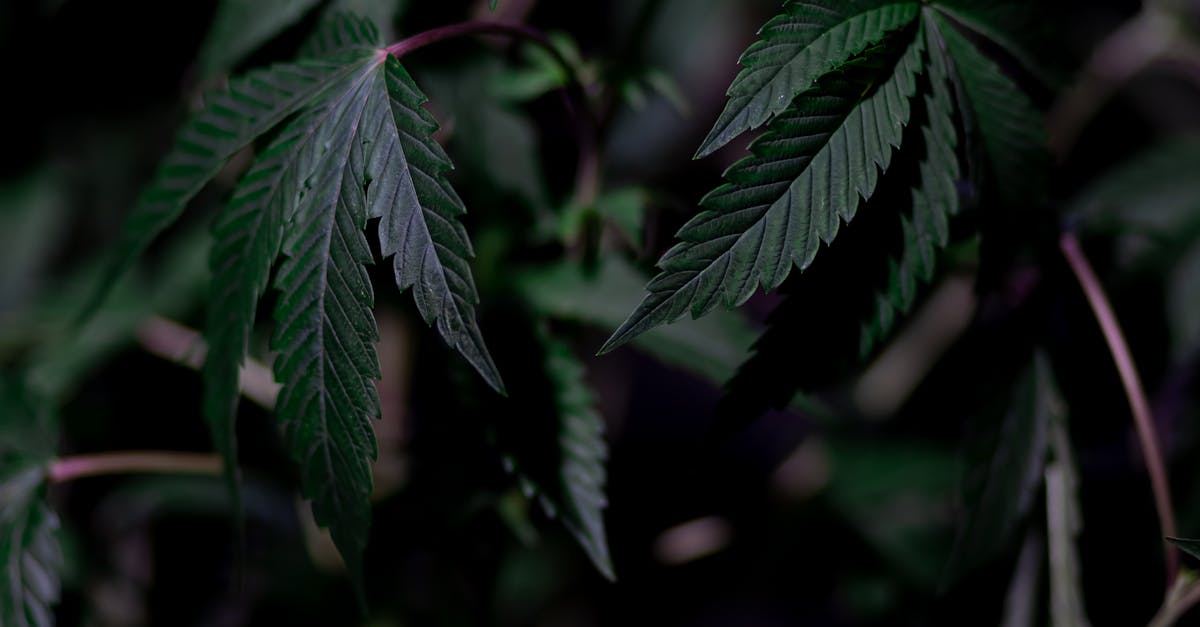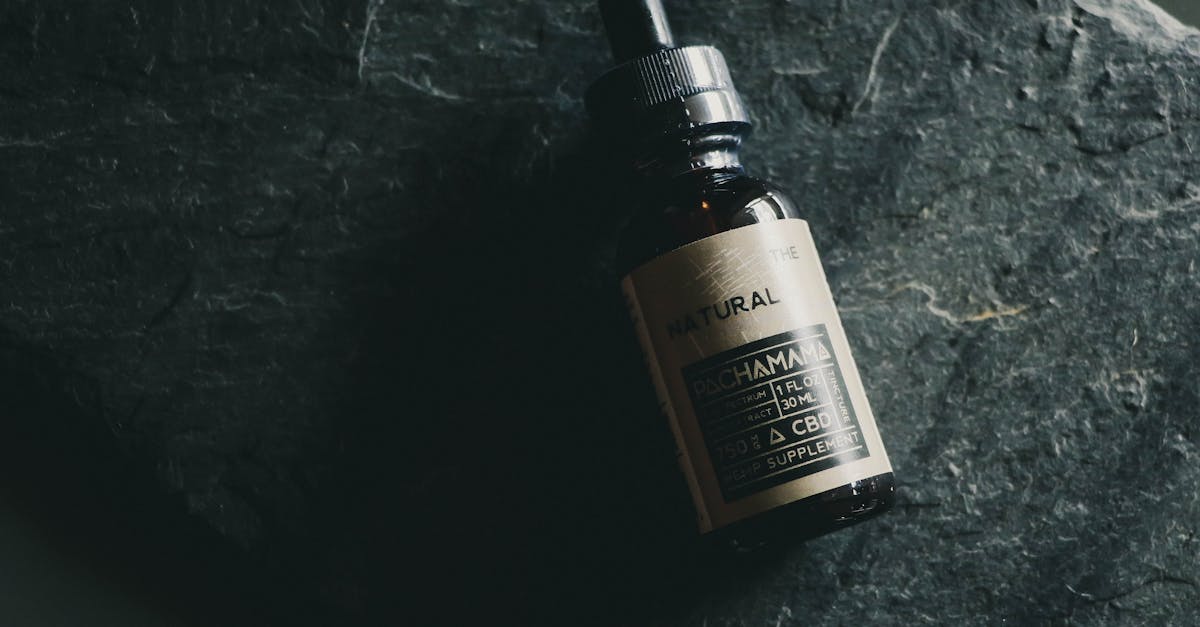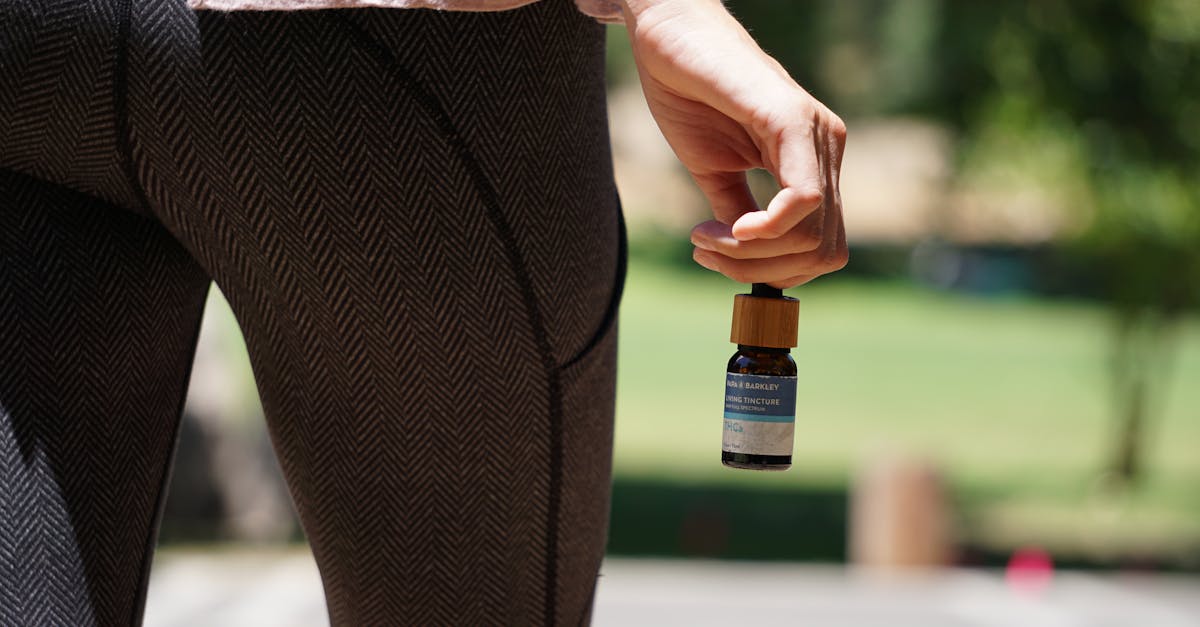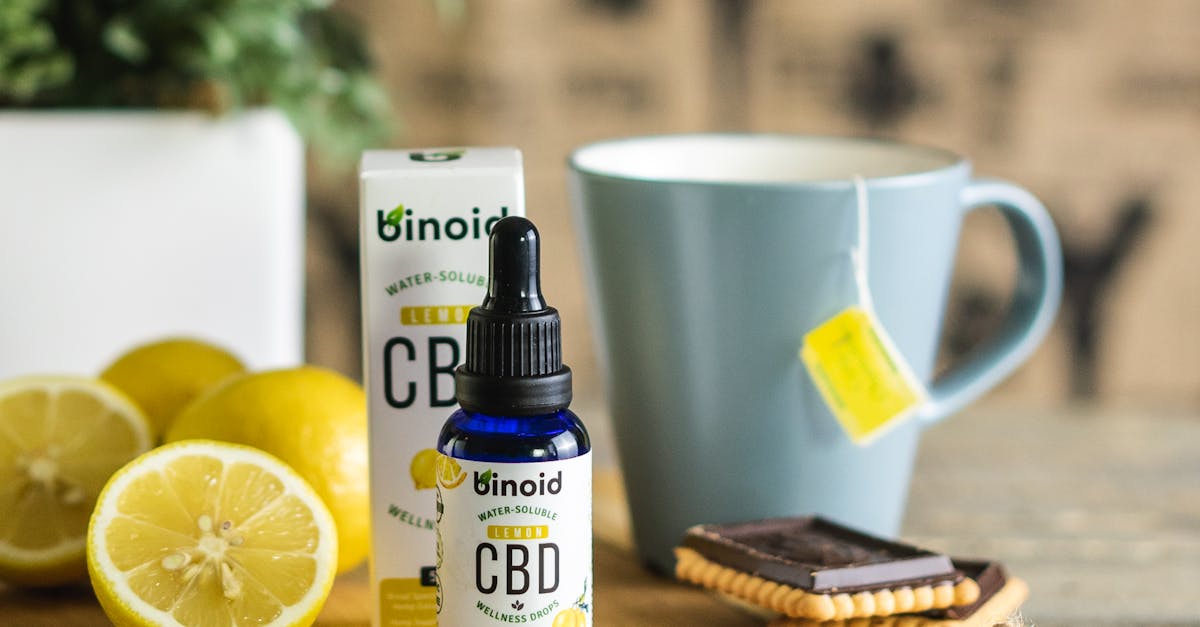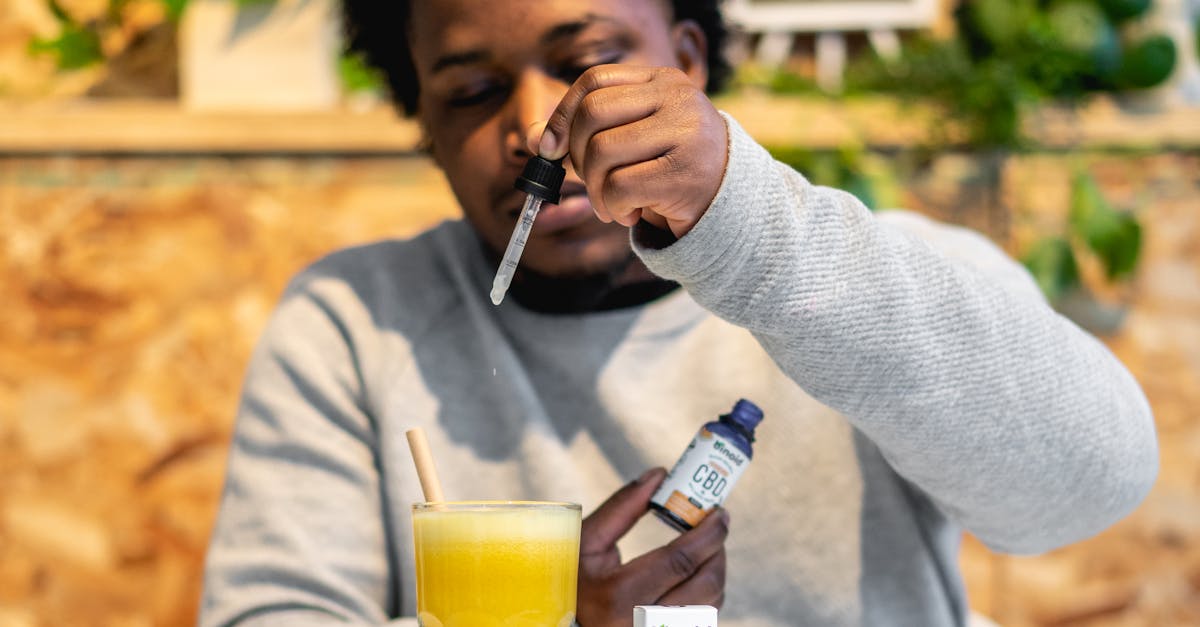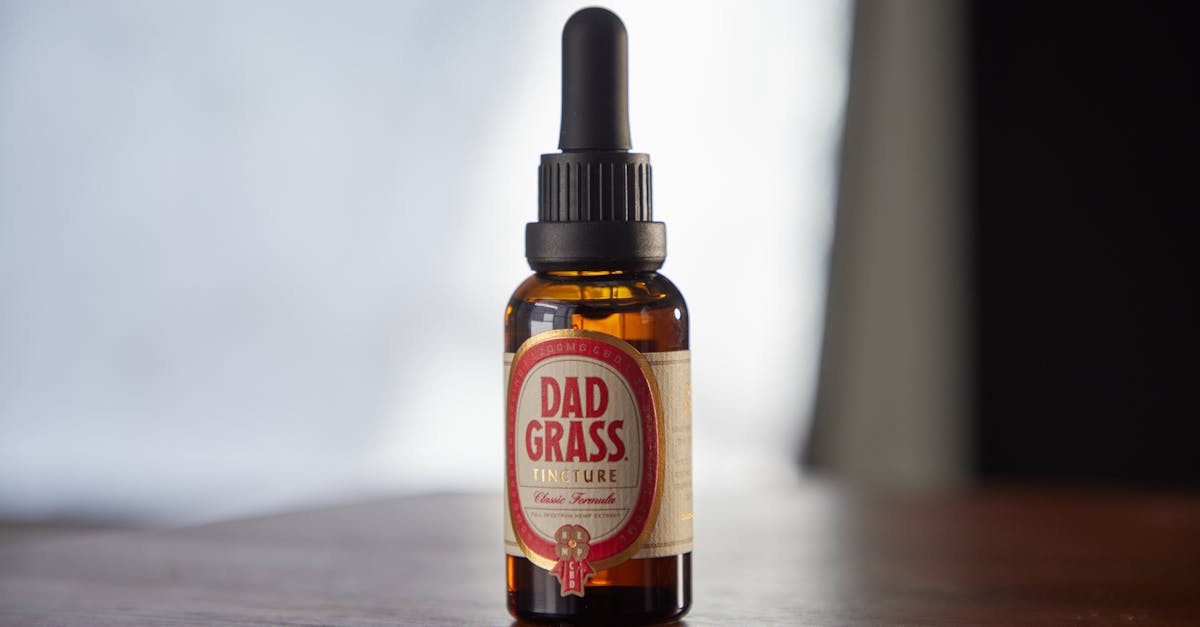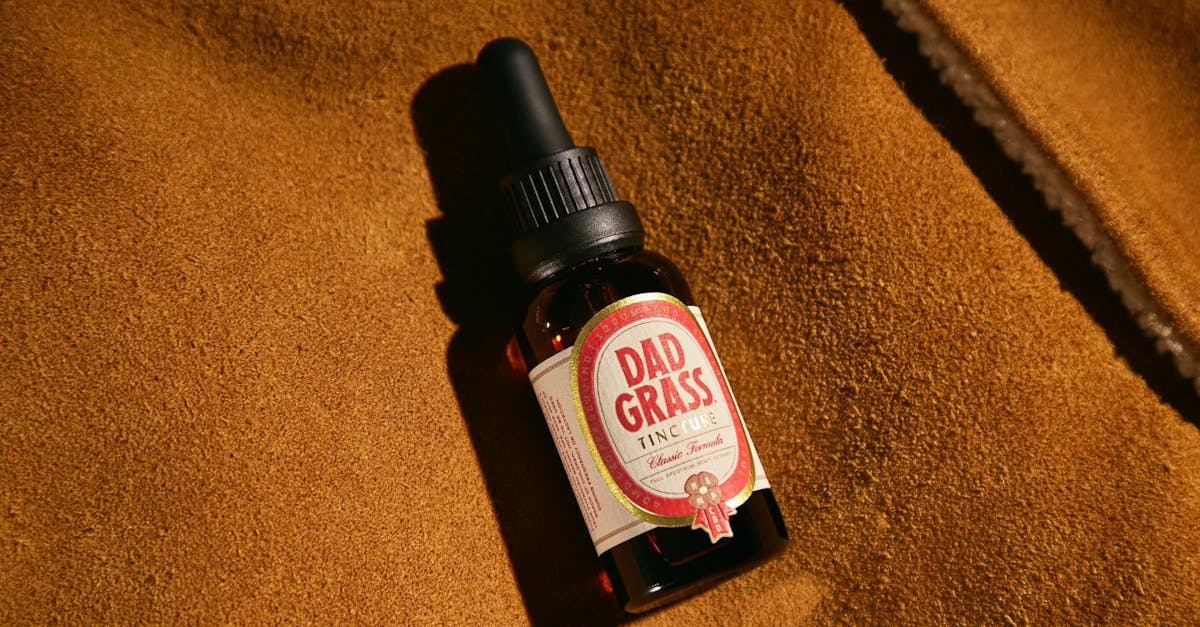
Table Of Contents
Learning about the extraction methods used in cannabis tinctures
When it comes to crafting cannabis tinctures in Kleinburg, the extraction method plays a fundamental role in determining the final product's quality and composition. Two common techniques employed in the industry are CO2 and ethanol extraction. CO2 extraction involves using carbon dioxide as a solvent to separate the desired cannabinoids and terpenes from the plant material. This method is known for its efficiency and ability to produce highly potent tinctures. On the other hand, ethanol extraction utilizes ethanol alcohol to extract the cannabinoids and terpenes from the cannabis plant. This method is favoured for its simplicity and cost-effectiveness, although it can sometimes result in a less refined product compared to CO2 extraction.
Understanding the nuances between CO2 and ethanol extraction methods is crucial for consumers seeking the best cannabis tinctures in Kleinburg. While CO2 extraction is often praised for producing a purer and more potent product, ethanol extraction offers a more straightforward and economical approach to tincture production. Each method comes with its own set of advantages and considerations, ultimately influencing the overall quality and efficacy of the final product. By grasping the intricacies of these extraction techniques, consumers can make informed decisions when selecting cannabis tinctures that align with their preferences and expectations.
Understanding the differences between CO2 and ethanol extraction
Extracting cannabinoids from cannabis plants to create potent tinctures involves various methods, with CO2 and ethanol extraction being two common techniques. Cannabis Tinctures in Pickering are often made using either CO2 or ethanol, each method presenting distinct advantages. CO2 extraction is known for its ability to preserve the plant's original molecular structure, resulting in a high-quality product with minimal impurities. On the other hand, ethanol extraction is praised for its efficiency in dissolving a wide range of compounds, making it a versatile option for producing tinctures with diverse cannabinoid profiles.
When comparing CO2 and ethanol extraction methods for creating cannabis tinctures in Pickering, it's essential to consider factors such as safety, purity, and cost. CO2 extraction is generally regarded as a safer option, as it does not involve the use of potentially harmful solvents. However, this method can be more expensive due to the advanced equipment required. Conversely, ethanol extraction is a more cost-effective approach for producing tinctures, although it may result in lower purity levels compared to CO2 extraction. Ultimately, the choice between CO2 and ethanol extraction depends on the desired quality, efficiency, and budget constraints for creating cannabis tinctures in Pickering.
Storage and shelf life considerations for cannabis tinctures
Storage and shelf life considerations for cannabis tinctures are paramount in maintaining the quality and potency of the product. Proper storage is essential to ensure that the tincture retains its efficacy over time. When storing cannabis tinctures in Kleinburg, it is crucial to keep them in a cool, dark place away from direct sunlight and heat. Exposure to light, heat, and air can degrade the cannabinoids in the tincture, leading to a reduction in its effectiveness.
Moreover, ensuring that the cap is tightly sealed on the tincture bottle can prevent oxidation and help maintain its shelf life. It is advisable to store cannabis tinctures in a dry environment to prevent any mold or bacterial growth that could compromise the product. By following these storage guidelines for cannabis tinctures in Kleinburg, consumers can prolong the potency and quality of their tinctures for an extended period.
Best practices for preserving the quality of your tincture
Proper storage is crucial for maintaining the quality and potency of cannabis tinctures in Kleinburg. To ensure longevity, store your tincture in a cool, dark place away from direct sunlight and heat sources. Exposure to light and heat can degrade the cannabinoids and alter the overall composition of the tincture. Additionally, keeping the tincture in an airtight container will prevent oxidation and maintain its freshness.
It is advisable to label your cannabis tinctures in Kleinburg with the date of purchase or creation. This practice helps to track the tincture's shelf life and potency over time. As with any consumable product, regular inspection of the tincture for any changes in color, consistency, or smell is recommended. If you notice any significant deviations or if the tincture appears to have gone bad, it's best to discard it to avoid any potential adverse effects.
The legality of purchasing cannabis tinctures in Canada
The sale and purchase of cannabis tinctures in Canada have been regulated under the Cannabis Act. This legislation, enacted in 2018, outlines the rules and restrictions surrounding the production and distribution of cannabis products, including tinctures. In Canadian provinces like Ontario, where the sale of cannabis tinctures is permitted, consumers have access to a variety of product options through licensed retailers. Cannabis Tinctures in Pickering can be legally purchased by individuals who are of legal age and comply with the regulations set forth by Health Canada.
It is essential for consumers to understand and adhere to the specific guidelines regarding the use of cannabis tinctures in Canada. While the legislation has made strides in legalizing the sale of cannabis products, including tinctures, there are still limitations in place to ensure public safety. By following the regulations set by Health Canada and local authorities, individuals can safely and legally purchase and use cannabis tinctures in Pickering and other regions of Canada. Understanding the legal framework surrounding the sale and use of cannabis tinctures is crucial for both consumers and retailers to ensure compliance with the law.
Regulations surrounding the sale and use of tinctures in the country
Regulations surrounding the sale and use of tinctures vary across Canadian provinces and territories. In Kleinburg, Ontario, it is legal to purchase cannabis tinctures from authorized retailers. However, there are strict guidelines in place to ensure the safe consumption and responsible sale of these products. Consumers must be of legal age, typically 19 years old, to purchase cannabis tinctures in Kleinburg.
The regulations also dictate that cannabis tinctures in Kleinburg must be sold in child-resistant packaging to prevent accidental ingestion. Additionally, products must be properly labeled with information regarding dosage, ingredients, and any potential side effects. Retailers are required to adhere to these regulations to maintain compliance with the law and ensure the safety of consumers purchasing Cannabis Tinctures in Kleinburg.
FAQS
What is a cannabis tincture?
A cannabis tincture is a liquid extract made from cannabis plant material, typically using alcohol or another solvent to extract the cannabinoids and terpenes.
How do extraction methods affect the quality of cannabis tinctures?
The extraction method can impact the potency and overall quality of a cannabis tincture. Methods such as CO2 extraction are known for producing high-quality tinctures with consistent cannabinoid profiles.
What is the difference between CO2 and ethanol extraction in cannabis tinctures?
CO2 extraction is a more expensive but cleaner method that preserves more of the terpenes and cannabinoids, while ethanol extraction is more cost-effective but may result in a slightly lower quality tincture.
How should cannabis tinctures be stored to maintain their potency?
Cannabis tinctures should be stored in a cool, dark place away from direct sunlight to preserve their potency and prevent degradation of cannabinoids and terpenes.
Are cannabis tinctures legal to purchase in Canada?
Yes, cannabis tinctures are legal for purchase in Canada through authorized retailers and online stores as part of the country's legalized cannabis market.
